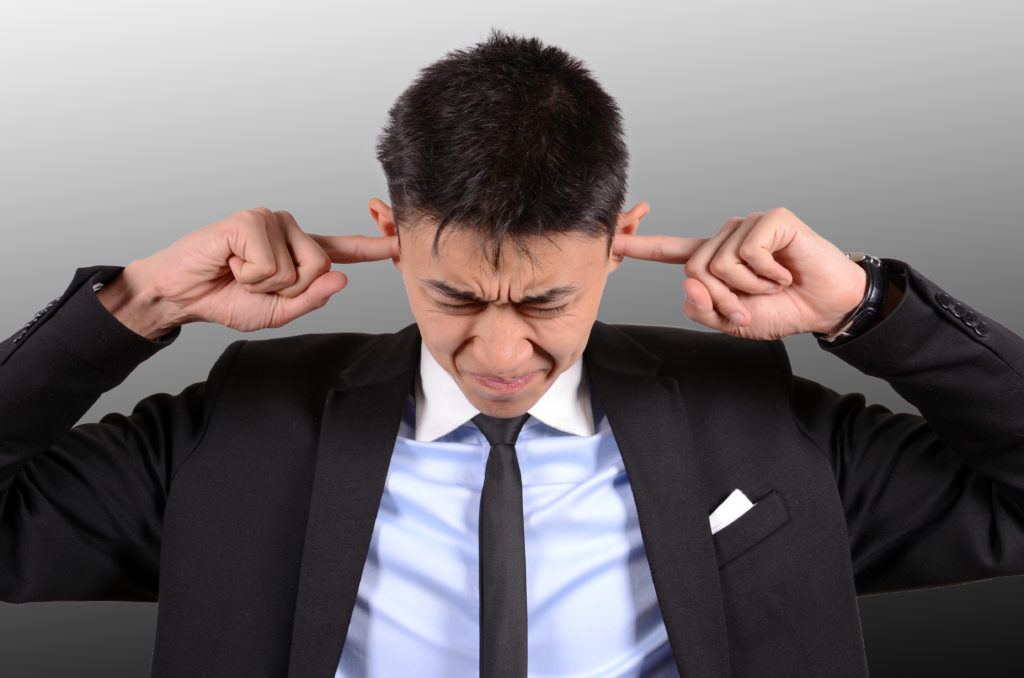Noise is more than just a Nuisance
Environmental noise is one of the most strongly perceived environmental impairments in Germany. 76 percent of the German population feel the noise permanently harassed. Among the main sources of traffic noise from cars, planes and trains, but also the noise from the neighborhood is perceived by many people as a nuisance. A constant noise is much more than just a mere Nuisance. The Robert Koch Institute (RKI) warns: anyone Who is regularly exposed to high sound levels that risked long-term or permanent damage to the mental and physical health.
The German society for acoustics, the working ring to the noise of the DEGA (ALD) and the RKI declared on 24. April 2019 to 22. With the action “day against noise” on the many negative effects of the General noise pollution. The experts warn, among other things, prior to permanent noise in the ears (Tinnitus), hearing loss, increased Stress, sleep disturbance, performance impairment, increased anxiety and a decreased quality of life due to environmental noise.

Three out of four people are affected by noise pollution
No matter whether recurring short-term noise peaks, or a constantly high noise level – noise from the environment can be to a serious health burden. “According to the latest statistics of the German Federal environment Agency, 76 percent of the German population feel from the road traffic noise disturbed or harassed, 44 percent of air traffic noise, 38 percent of the rail traffic noise”, writes the German society for acoustics, in a recent press release. According to RKI, every fourth Person feels in addition, noise from the neighborhood, harassed.
Health Risk Of Noise
Noise is often taken as a disturbance or Nuisance. Many people do not know that with a constant noise, many of the health risks associated. A persistent noise pollution may lead to “impairment of the hearing system, temporary or permanent noise in the ears (Tinnitus), or up to a hearing loss,” emphasize the RKI experts. In addition, noise is also a psycho-social stress factor, the perception of the subjective well-being and perceived quality of life can greatly restrict.
Severe disease driven by chronic noise exposure
Who is long exposed to prolonged or even chronic noise exposure, according to the RKI, a higher risk of cardiovascular diseases such as hardening of the arteries, high blood pressure, stroke and heart attack. Also the blood fats, blood sugar levels and the coagulation factors in the blood are affected by noise pollution negative.
Aural and extraaurale effect of noise
To distinguish the so-called aural effect of noise pollution. This directly affects the organ of Hearing and is dependent on the strength, duration, and intensity of the sound level. On the other, there are the so-called extraaurale effect of noise, when the noise is not necessarily harmful for the ears, but as a psychological stress factor is the health affects. According to the RKI, these stress triggers and acts to a similar degree as other stressors, such as chronic Overwork, under-claim or pressure.
Taglärm and night noise act differently
Of noise stress can tägsüber or at night lead to different impairments. The noise of the day is connected according to RKI tends to be increased with emotional Stress, feelings of harassment and Disturbance, as well as with increased anxiety. The noise occurs more at night, can speak of this due to sleep disturbances and reduced performance.
When will noise to the noise?
The current recommendation of the world health organization for the average due to road traffic-related noise exposure should be during the day amounted to more than 53 decibels. For night-time noise, the WHO recommends, to keep the noise level below 45 decibels. Nocturnal road traffic noise above this value was associated with impairments of sleep. (vb)
